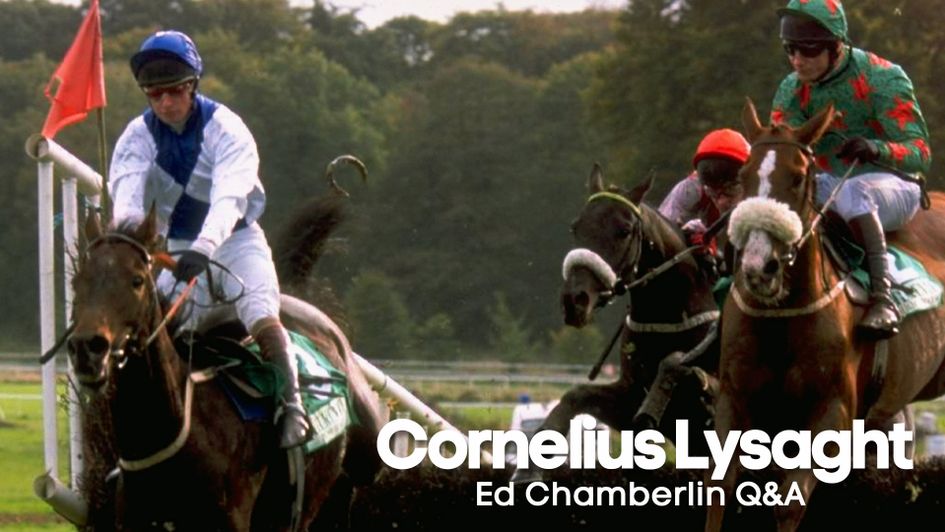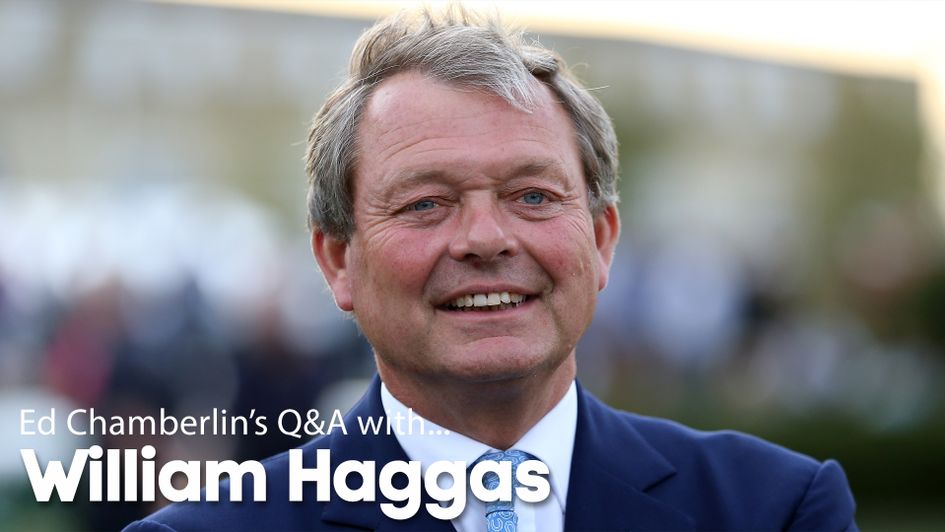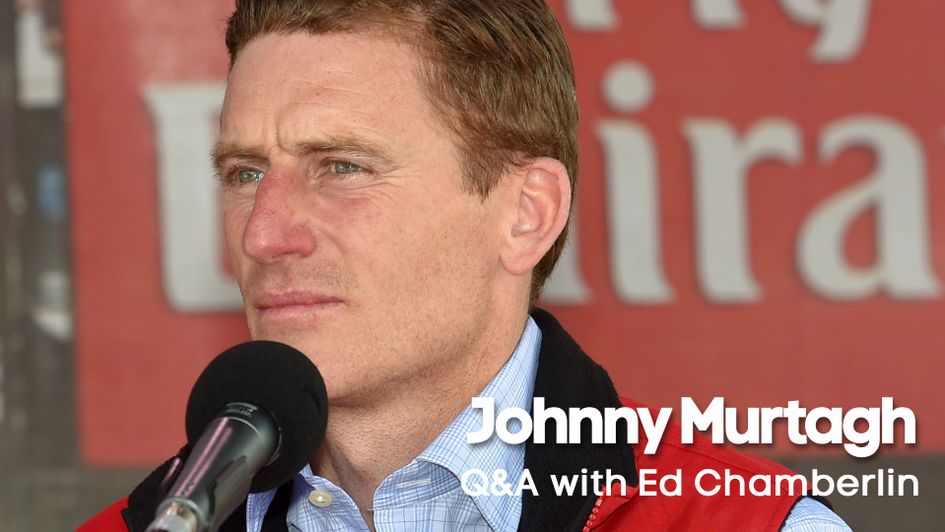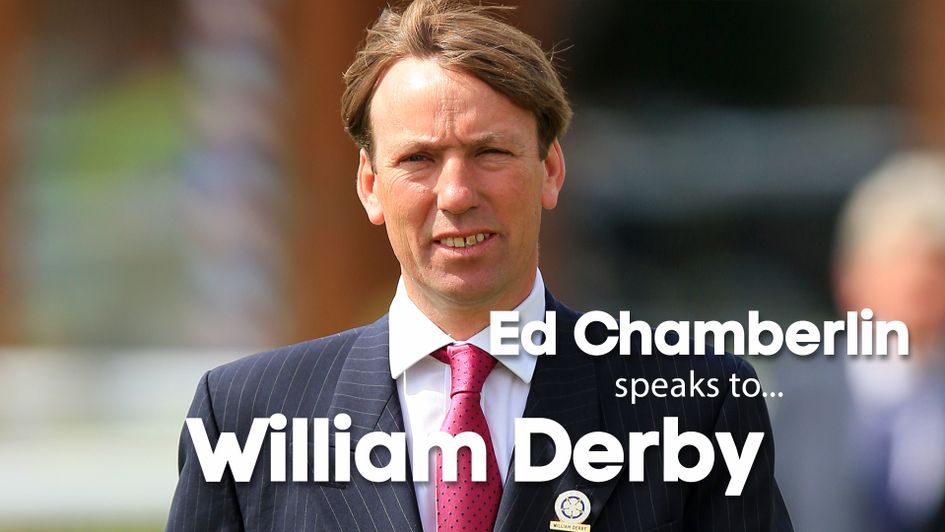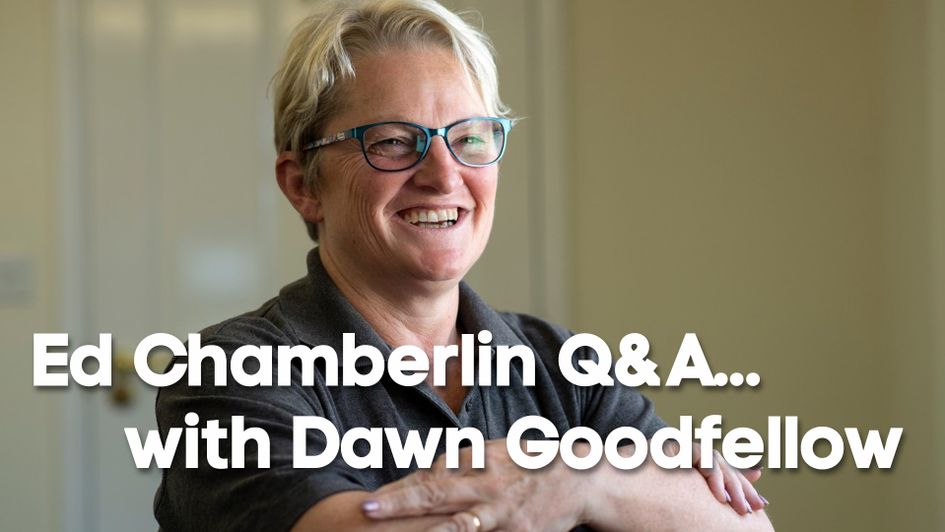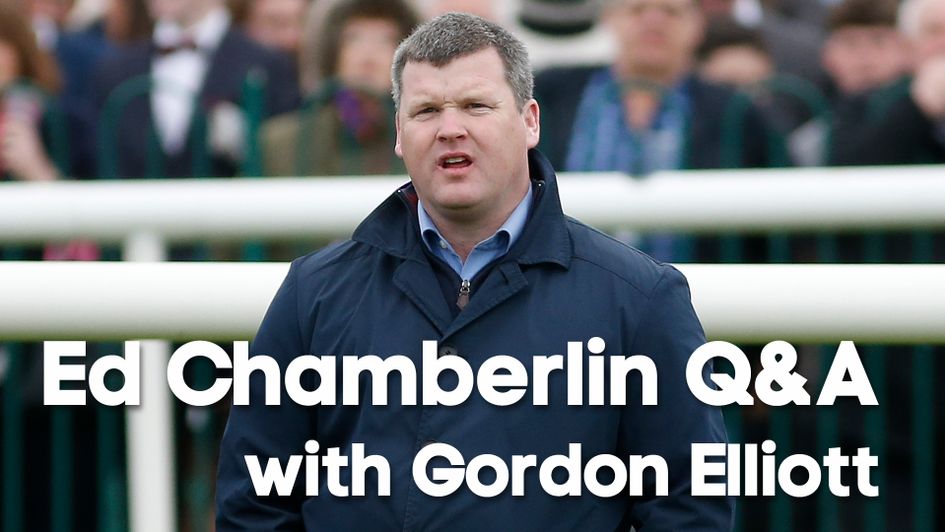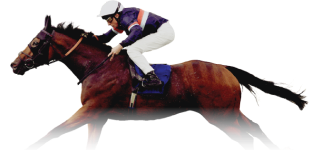Ed Chamberlin catches up with top radio broadcaster Cornelius Lysaght, who leaves the BBC after 30 years next week, about a range of subjects from his career in racing.
Ed Chamberlin: In the latest of our series of interviews for Sporting Life, a man with one of the most recognisable voices in sport, not just racing, Cornelius Lysaght are you safe and well in these extraordinary times?
Cornelius Lysaght: Yes, I’m quite happy in my own company, which is just as well as I’ve spent a lot of time just with myself over the last couple of weeks. I’m lucky enough to live in the countryside, the weather’s obviously been good, I’ve been following the guidelines from the government, my friends and neighbours have as well, I’m fit and well, but one of my closest friends is in hospital with Covid-19 so I’m more than aware of the concerns.
EC: We wish them well, Cornelius. Now I know you love a quiz – are you a Zoomer?
CL: I’d never heard of Zoom before about five weeks ago. I have a colleague at the BBC with a very distinctive voice, a brilliant football commentator called Conor McNamara, and he’s brilliant on the technology front.
About five weeks ago I was at home here in the south Midlands, he was in a cottage with his children finishing a holiday in County Kerry and John Murray, our football correspondent, was at home in the North Yorkshire Moors.
And the best thing about Zoom is you can sit there and chat away and you’re not buying anyone else’s drinks. I see the Oxford University Press were coming up with new words to put in the dictionary as a result of lockdown and even though it starts with a ‘Z’ I should think Zoom will be pretty high on the list.
EC: These are strange times and I know your thoughts are with your friend and the frontline workers who are doing such heroic things for everybody, and you’re far too self-deprecating and unselfish to make much of it, but it must be a real sadness for you that after such a brilliant BBC career you haven’t been able to finish it on a high. I imagine you had planned to finish it at the racecourse?
CL: Ironically, Peter Bromley, my predecessor, retired in 2001 so didn’t have a final Cheltenham Festival at which to work.
I’ve gone in 2020 and April is my favourite month of the year in many ways, you’ve had Cheltenham, so the really serious stuff is out of the way, you go to the Lincoln for a brief flirtation with Flat racing, and then you get into April with three tremendous goodies in my book. Firstly, the Grand National at Aintree which I was looking forward to immensely because of Tiger Roll going for the third, although I had a feeling Potters Corner would go well as I love a good story, but Aintree obviously didn’t happen.
I adore the Scottish Grand National, it’s almost my favourite race of the whole year, long distance but a fair flat racecourse and horses very much on the up can do well there, so no chance to go to Ayr. And then it would’ve been marvellous to go to Sandown for the last day of the season, such a poignant day every year.
I’m a massive fan of the northern jump circuit and to have been able to put Brian Hughes’ name up in lights as the new champion jockey would’ve been great. Hopefully we can revel in Aintree, Ayr and Sandown in 2021.
Like Davy Russell said on the radio the other day, like Cheltenham in 2002, people will be so up for the 2021 Grand National as absence makes the heart grow fonder, so we’ll look forward to next year.
EC: I think we’ll appreciate all those things all the more. Let’s go down memory lane and talk tales from the press room. Tell us about your early days, walking into the racecourse press room.
CL: I joined the BBC in August 1990 but I’d been around a little bit before then. I worked for an organisation called Racecall which was considered terribly cutting-edge at the time, putting racing commentaries on the telephone, and I’d been a journalist in Cheltenham and Gloucester, so I knew the press room a bit.
The big names then were a completely different generation, people like Michael Seely who wrote for The Times. Chris Poole was the racing correspondent at the Evening Standard and he was a great big fellow with a booming voice who worked for the BBC World Service as well.
Each newspaper had its own telephone, there were ranks of them then, and I didn’t realise how it all worked, so I picked up this telephone to make a call and it was Pooley’s phone. My goodness, if I turned up wearing a motorcycle helmet holding a baseball bat I wouldn’t have got a less friendly reception.
There were people like Peter Scott who was a very prim and proper correspondent for the Daily Telegraph before Jim McGrath took over, there were other people as well. But the most striking difference between then and now, in the late 1980s, press rooms in those days included a bottle of whisky, beers, a bottle of wine, probably a bottle of gin.
Jim Stamford from the Daily Mail was a big character who didn’t need to be asked twice about the drinks tray. That’s the difference, in those days people didn’t think twice about having a couple of jars, going off around the racecourse, popping in a few bars along the way, and then hobbling back and writing the stories they’d discovered.
Michael Seely, in particular, you’d read his stuff in The Times the day after seeing him a little worse for wear in the press room and you read the words and they were just golden, beautifully put together, beautifully constructed.
He was just an amazing guy Michael Seely, he’d been to the same school as me and I remember saying this to him and he said ‘I hope I’ve set a good example to you’, as he poured himself another large one.
EC: Some big names there and you were following a huge name in Peter Bromley, another iconic voice. They must’ve been big boots to fill?
CL: I knew him a little bit and I must look to the skies and tip my hat to him as it was he who suggested me for the role at the BBC, but it didn’t make it any less frightening.
These guys in the late eighties, let’s say for argument’s sake they were my kind of age now, they’d known war-time austerity, they’d known different kind of lockdowns to the one we’re experiencing, so they came from a completely different generation to us.
Peter Bromley was born in the late 1920s so he’d be just over 90 if he was still around now, he had a booming voice and he was deaf in one ear as well so the booming was even more pronounced.
A bit like John Hunt on Radio 5 Live now, or Richard Hoiles on ITV, what they can achieve with their voices, you just think they can’t go anywhere else and then they go another level, Bromley was just like that.
He wasn’t a great one for suffering fools, though, and at the BBC everyone had their Bromley stories. The greatest one was at York.
We used to have a preparation room, before mobile phones obviously, and he walked into the preparation room one time and he handed Graham Reid-Davies, who was the producer at the time, the landline phone which was at the desk and he said ‘dial this number 01904’...
Graham Reid-Davies was saying 'but that’s the code for York, we’re in York, who are we ringing?' and he said 'we’re ringing the clerk of the course’ to which Graham said ‘why are we ringing the clerk of the course?’ And Bromley said ‘it’s an absolute disgrace, I’ve just been in the main gents in the grandstand and there’s no loo paper in any of the cubicles, it’s a disgrace. It’s so appalling I had to use the greyhound section of the Racing Post.'
But everyone had a Bromley story and when they had a programme to mark his retirement in 2001, they called it ‘Get Me The Director General’ as that’s what he used to say when he was really annoyed. But he was actually absolutely charming, like most people with a booming voice.
EC: One of the best things about being in isolation is going down memory lane and listening to some of those old commentaries from Peter Bromley and Sir Peter O’Sullevan as well.
CL: I’ve actually had to do a programme for 5 Live, which will be available on the BBC Sounds app, as somebody said to me can you do a programme of your 10 favourite races since 1990.
I asked someone at the BHA to work out how many races there had been since then and I take my hat off to the person in the stats department who told me there had been 40,000 fixtures and around 257,000 races since August 1990 - and the BBC said can you pick 10 of them to make a programme!
Obviously, on the BBC and on ITV, we talk about the Grand Nationals and the great races at Cheltenham and Ascot, of course we do, and quite rightly so, but there are so many great stories that have resonated with me that took place at venues like Bangor-On-Dee or Salisbury, Beverley or Perth.
That is the great thing about British racing, that now Towcester’s gone we’ve got 59 racecourses and some stories that didn’t make the headlines, like Tiger Roll or Frankie Dettori, are worth telling. So it was quite a task.
My favourite horse in the last 30 years was Danoli, he wasn’t a big name in Great Britain, but he was a great Irish star in the mid 1990s and in our programme we found O’Sullevan’s commentary of his win in the Sun Alliance Hurdle.
He was so taken aback by the noise it just put him off for a stride.
It was brilliant to hear that, then we had Bobbyjo winning the Grand National in 1999 with Bromley describing it, the Irish hadn’t won the race for 24 years at the time, and we had lots of John Hunt commentaries, too.
They even dug out a bit of my commentary, that 1999 Grand National, from Valentine’s to the Melling Road, a friend of mine had a horse in it called Blue Charm, who sat prominently and finished second, so even I couldn’t miss him.
EC: We’re looking forward to hearing that. Just going back to the press room, who have been your close allies in there over a period of time?
CL: Funnily enough there’s not much squabbling, back-biting that kind of thing. There are occasions as you’re trying to get the best stories and work under the pressure that is there on Derby day or Cheltenham Gold Cup day, it’s quite intense.
Claude Duval, who wrote for The Sun for many years, is a good friend of mine, Charlie Fawcus on the Mirror, they used to have a pretend rivalry between the two of them.
Then Colin McKenzie was a huge friend on the Daily Mail, he and I used to live quite close to each other in London and there was a time he couldn’t drive in the 1990s so I drove him around a lot, I got to know him well then.
He’s always been known in the press room as shifty but nobody quite knows why. It goes back to the days, he was a brilliant journalist Colin MacKenzie, he ended up being racing correspondent for the Daily Mail, but in the 1960s he was a great investigative journalist who found the Great Train Robber Ronnie Biggs in South America, so it was something to do with that.
John Garnsey for the Express, JA McGrath the Telegraph’s man who revolutionised racing commentary in the modern era.
More recently, there are five of us on a WhatsApp group, Marcus Townend of the Daily Mail, Marcus Armytage of the Telegraph, who I’ve known since we used to sit next to each other in geography lessons, Steve Jones who was on The Sun until last year and Dave Yates of the Mirror, there’s plenty of banter on there and we all get on really well.
There’s a lot of bickering, but all friendly.
About three or four years ago there was a media trip to Ireland and I was with both Townend and Armytage and we’d split off from the main group to see Henry de Bromhead in Waterford.
We got down there the day before and I had a share in a horse running at Ayr that day, so I said I’m going to find a betting shop and they came with me.
We went into this Paddy Power shop in Waterford and my horse, Craiganboy, ridden by Grant Coburn, trained by Nick Alexander, came with a fantastic late flourish to win this race at Ayr.
There was some noisy support for this horse over the last few fences I can tell you, I think in that betting shop they’ll still talk about those noisy bloody Englishman that caused chaos that afternoon.
But it was very touching and if you’re lucky enough to have a share in a horse, and I only have a small share in this particular horse, it’s important that you enjoy it and that your friends enjoy it.
Even if trainers always say the most dangerous people in their lives are not owners, but owners’ friends, who always have an opinion when things go wrong.
EC: And just finally on the characters in the press room, I’d love to have known Alan Lee who loved cricket and football which are two of my passions, and we can’t not mention John McCririck, who you described as rent-a-gob after he sadly passed away.
CL: Alan Lee was a fantastic guy and a bit of a mentor to me. He’d done a lot of cricket reporting and he was probably the most outstanding writer of the last 20 years or so. He sadly died ridiculously young in his early sixties, and he loved his racing.
If you go to a party and say you work in racing there are two people that everyone asks you about. One of them is Frankie Dettori and the other is John McCririck. What’s Big Mac like in real life? I have to say with hand on heart he was absolutely delightful, throughout the whole time we worked alongside each other McCririck loved the banter, but he did play the part.
One day at Doncaster Jenny, his wife, The Booby as he called her, said to me ‘I’ve got a bit of a drama, I’ve got to go and see my mother, my mother won’t see John and John won’t see my mother. I’ve got to get John back to London, could you do me a favour and give him a lift back to London?’
I thought that would be fun and we got to the bottom of the lift at Doncaster and he says ‘where’s the car?’ I said ‘it’s in car park two over there’ and he says ‘why didn’t you bring it over here?’ I said ‘I didn’t get chance’ but was thinking to myself if you play up again you can bloody walk home, but I soon realised why he wanted the car close.
He was such a massive figure, there are very few people in life who were the size in personality and figure that he was, so recognisable, like Clare Balding who also takes a long time to get to her car because of all the attention.
We got there and he insisted he sat in the back, window wound down, and as we were driving through crowds of racegoers walking back to town he was waving like he was Her Majesty the Queen.
But then he took me out to dinner and was on the phone the next day saying thank you, when we won an award in 2003 he was the first on the phone saying well done, so for all the bluster he was a very nice and kind man.
EC: Time for some quick-fire questions. If I had to nail you down to the meeting you enjoy the most throughout the year what would it be?
CL: The Grand National at Aintree, unquestionably. Cheltenham, Ascot, Goodwood and York, they’re all fabulous, but that Saturday afternoon when the eyes and the ears of the world are concentrated on that corner of Merseyside is the most special day of the whole year.
And having so much support brings its responsibilities, there’s a figure banded around of 600 million people around the world following the race, and some of those responsibilities have been uncomfortable at times, but Aintree have done a magnificent job.
The Grand National remains a huge part of British racing, sport and heritage going way back to the 1830s when Captain Becher fell at Becher’s Brook into the water.
My great grandmother was a Miss Becher, with plenty of time on my hands I’ll have to do my own personal Who Do You Think You Are? And find out if Captain Becher links into my family as that would be magic.
EC: Aintree clearly has a special place in your heart and you’ve written about racecourses around the world – do you have one favourite from around the world?
CL: It would probably still be Aintree! But I’m fascinated by South America, those huge stands, good quality racing, they’re not the most famous countries in terms of racing by they want to be bigger and both Argentina and Brazil are like that.
If we’re ever allowed to fly again that would be some trip to explore these places, particularly the racecourse in Rio, there are some striking photos of that course in the book – available in both good and bad bookshops.
My parents had a book business and my one sadness about that book is that I always said I wanted to put a book together for them to be able to sell in their shop, but that never quite happened. But I do appreciate books and it was great to put that one together, who knows there may be another one.
EC: Is there one scoop or story that has given you the most satisfaction?
CL: Scoop is probably not the right word but one of my most memorable days was my birthday, in the mid 1990s, January 27, and I went to work at the BBC to present racing bulletins in the morning and I think I had arranged a bit of a night out with some BBC friends to celebrate.
I remember one of them was Marcus Buckland who is now at Sky, we were ready to roll when a number of jockeys were arrested, obviously a good story, it turned out all charges were denied and what have you, but to have that happen on your birthday sticks clearly in the mind.
Another story is I went to a quiz in London with Mark Pougatch, now of ITV, then of the BBC, and we won this quiz, there must’ve been 40 teams, it came down to the last answer and the question to win it was ‘what is the woman Shelley von Strunckel’ well known for?
Nobody knew, but I said ‘she came to my 21st birthday party’ and she was a friend of my godmother’s, she did the stars in the Evening Standard.
So we won the quiz and Pougatch, for all his polite, well-mannered image, does know how to celebrate. It’s not a secret he’s not necessarily a Tottenham fan and I remember we went to a bar with the trophy we had for winning the quiz and he was saying ‘we’ve won more trophies than Tottenham in the last 25 years’.
It turned into a really late night and it dawned on me I had to be in work in two hours time. I rang the office and said ‘I am coming in but I may be a little less punctual than normal’ and it was tough going that morning.
Suddenly it was 11.30 and time to go home, I was thinking bed is beckoning, when a jockey friend of mine rang me and asked if I’d heard on the news about a plane crash in Newmarket?
He told me to be aware that Frankie Dettori had not arrived at Goodwood.
Deep breath, I was back in full working mode again, sadly the pilot of the plane died, happily Frankie and Ray Cochrane got out, it was a massive story and we were able to tell that story first, and though you shouldn’t be boasting about breaking a sad story like that it was a big deal and I remember it well.
EC: And you’ve told those stories over the years with such a distinctive voice, but you’ve got a distinctive name as well. Has it caused problems over the years when booking a table or ordering a coffee?
CL: Funnily enough I always thought Lysaght was the tricky part as nobody could ever spell it. My father called me Guvnor for some reason, but it’s a name that has never been shortened, Corny is certainly banned in this household and every single household of friends of mine!
It was noticed once that Lysaght is an anagram of ghastly, but thankfully Mr Ghastly lasted for only about three weeks. People feel they know me which is really nice, although in my teens I’m not sure I felt the same.
The great moment came in one of those American-based coffee houses where they ask for your name to write on the side of the paper cup in order to engage better with the customer.
I was in Starbuck’s in Stratford which is not a million miles from where I live, I ordered my latte and the guy serving, I would think, was probably an actor in the RSC in Stratford, trying to make ends meet.
He took the order and was quite theatrical about it, saying ‘name?’ in a theatrical way and I said ‘Cornelius’.
There was a pause and he said in a more menacing voice ‘look mate, it wasn’t my f***ing idea don’t take the piss’.
There's also an off licence in Edinburgh called ‘Cornelius’ and I went in during the Edinburgh Fringe once and asked if there was a discount for anyone called Cornelius. I don’t know if it was my accent or the ridiculousness of my suggestion but I left those premises rather quickly!
EC: A few serious questions to finish with. Do you fear long term for racing and its place in British society?
CL: I think there are challenges. A really good example has come out during this Covid-19 crisis. Sport’s reputation for one reason and another is not soaring at the moment.
The Cheltenham Festival has become a target for going ahead before the country went into lockdown, but there were plenty of Premier League matches going on, Champions League matches that very week, including one at Anfield between Liverpool and a team from Spain, there were concerts the weekend after Cheltenham took place.
But for whatever reason, Cheltenham and by inference racing, has become a target.
Racing’s position in the media has been affected and it’s not what it was only 20 years ago. I think that is a challenge, quite what the answer to it is I’m not sure, and while I’m a BBC employee it’s not for me to think about. But from May 1 I’m unemployed so I’ll have plenty of time to think about it then.
Racing is a great sport, a very important industry with centuries of heritage.
One of my colleagues always puts when he’s reporting on a major race ‘it’s the 240th Derby’ or whatever it was, in order to make the point that this sport has got all this heritage, so much going for it, but for some reason some people don’t really like it.
The best way to people’s hearts, apart from good horses and stories, is to need the media to not just dismiss racing before they’ve thought about it. That’s why I’m fearful. In certain aspects of the media, like on TV, it’s doing well, but in other parts it’s not doing so well.
EC: If you could make one change to racing in this country over the last 30 years, in order to improve the sport, what would it have been?
CL: This is entirely selfish but I think when you look at young participants in the sport now, trainers, jockeys, they just get it, they get the importance, they know it’s not a private members' club.
They get racing needs to be user friendly for the wider public, going back it wasn’t the same, they did not get that and they made a point of not getting it, but those people are not around so much now.
I think what’s good now is the media training, the understanding of the media has become so much more prevalent in recent years. Part of the reason for that is you’ve got three important TV channels covering the sport so people want to be part of that.
EC: Finally, what’s next for you?
CL: I’ve written the first 7,500 words of a book and it seems a good time to be writing one in lockdown. My good friend Marcus Armytage has written more books than me and you have backed winners and he always says the hardest part of writing a book is the distractions.
Hopefully there will be some good stories in there, we need plenty of cheering up these days.
Also all these social media platforms have got to be explored. I always used to say I don’t mind people calling me anything but I didn’t want to be called a dinosaur as that would really upset me, I love social media. I’m hosting a quiz on Facebook on Sunday night.
It’s not a great time to be coming up to unemployment but lots of people are in a similar type of boat and the most important thing is to smile and to look forward and beat the virus.
Even if we miss many big race meetings this year the important thing is to remember there will be a new era next year and a new beginning. We have plenty to look forward to.






